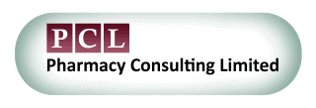Unlicensed Medicines (Specials) can only be supplied under one of the following circumstances:
- The medicine is not licensed in the UK. For example, this is often the case when a liquid version of a medicine is required for patients or possibly children, with swallowing difficulties.
- There is in the UK, licensed medicine available that does not fulfil the special clinical needs of the patient. In this case, a letter or other documentary evidence from the prescriber should be obtained to confirm why the licensed alternative is not suitable.
- The UK licensed medicine is out of stock. In this instance, the lack of stock availability must be confirmed, ideally with the manufacturer, and evidence of this confirmation retained on file.
However, manufacturers, on occasion will obtain a UK license for a medicine that was previously a ULM (Unlicenced Medicine). It is therefore important to check ULM’s status regularly to make sure that it is still categorized as ‘Special’. Supplying an unlicensed medicine when a licensed alternative is available would not be compliant with the requirements of MHRA Guidance Note 14.
There are several resources available online to confirm whether medicines have a UK license or not. Although not a comprehensive source, a good place to start is with ‘The electronic medicines compendium’ (EMC). This resource can be used by those looking for good quality, up-to-date information about medicines, such as:
- Carers or patients can check information about the medicine they are taking.
- Healthcare professionals, such as pharmacists, doctors, or nurses, can use the EMC to check the latest information about medicines and can aid them to prescribe medicines safely.
- The general public can find information about medicines they are thinking of taking.
The electronic medicines compendium is a trusted website for reliable up-to-date, easily accessible information about medicines licensed for use in the UK. The EMC has more than 14,000 documents, that have been checked and approved by either the UK or European government agencies, UK Medicines and Healthcare Products Regulatory Agency (MHRA), European Medicines Agency (EMA).
Further Resources can be found here:
The Electronic Medicines Compendium – not exhaustive as manufacturers are not obliged to list their medicine on this database – however most do
https://www.medicines.org.uk/emc
The NHS dm+d browser
https://services.nhsbsa.nhs.uk/dmd-browser/search
The British National Formularyhttps://bnf.nice.org.uk/
